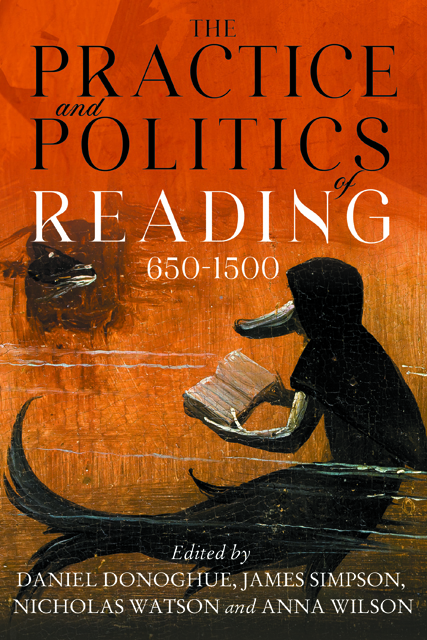3 - A Canterbury School of Literary Theory: Aldhelm's De virginitate, the Liber monstrorum, and (Un)Reliable Fictions
Published online by Cambridge University Press: 11 January 2023
Summary
From the seventh century to the twelfth, one of the most widely read works in England was the “treatise on sexual practice” by Aldhelm, abbot of Malmesbury and later bishop of Sherborne (d. 709). An opus geminatum or “twinned work” of matched verse and prose, the De virginitate offers an encomium of exemplary male and female virgins, produced at the behest of a group of women known for their wit and learning: Abbess Hildelith and the famously well-read nuns of Barking Abbey. As Diane Watt, Clare A. Lees, and Gillian R. Overing have noted, this fact alone helpfully overturns assumptions about the typical readership for Anglo-Latin literature, but Aldhelm’s text also merits attention as an influential guide to early medieval English reading practices precisely because it proved one of the most widely read – and obsessively annotated – works of the period. As a result of its preeminence as a schoolroom text, I argue that it transmitted not only Aldhelm’s thinking on the sexual rewards of chastity but also his conflicting approaches to reading and interpretation.
Furthermore, the De virginitate’s broader usefulness as a guide to early medieval English reading practices comes into focus when the text is read through the slightly unusual interpretive lens of a contemporary philosophical project: the Liber monstrorum or “book of monsters,” which survives in five full or partial copies as well as two inclusions (now lost) in a putatively ninth-century book-list that further attests to its popularity. Sometimes attributed to Aldhelm himself, the Liber likely stems from another, now unknown, scholar close to him at Malmesbury or the famous Canterbury school established by Theodore (archbishop of Canterbury from 668 to 690) and Hadrian (abbot of Saints Peter and Paul [later St. Augustine’s Canterbury]). Among others, Michael Lapidge and Andy Orchard have traced several intriguing correspondences between the two texts, triangulating between their points of overlap with each other and with Beowulf to ask whether we might locate an ancestor to our own Beowulf in Aldhelm’s Malmesbury and, by extension, whether the nature of monstrosity and vice in De virginitate and the Liber can shed any light on the Beowulf manuscript.
- Type
- Chapter
- Information
- The Practice and Politics of Reading, 650-1500 , pp. 63 - 83Publisher: Boydell & BrewerPrint publication year: 2022



